Don’t fall for the myth that midlife has to be a “crisis”. It’s just a natural time to re-evaluate what you’ve been doing and to decide what you want to do, on purpose for the next 15 years.
Check out today’s Walkabout video, and if you’d like to know more just click here
And you’re a person who likes to read rather than watch, here’s the transcript:
Hey, it’s Doug. I’m on another walkabout here while one of my golf courses is closed, it’s my favorite quiet thing to do later in the day.
And I’ve been doing a lot of reading and research on this whole so-called midlife crisis thing because I’m 55. I think I might’ve had my first midlife crisis in my early thirties.
I call it a crisis because I went out and bought a convertible. So maybe that was my first midlife crisis car. That was the worst thing that I did I suppose.
But I’ve been researching this and apparently, there’s this shift that happens when you’re about 50 and I’ve seen it with my friends and I got curious where you go from this place of having to provide and catch up.
To more of a place of abundance.
And it’s a natural time in your life when you might start thinking about where am I, what are my values? How did I get there? And then I thought of it.
I thought, wait a minute, I’m a recovering lawyer. We decided what to do when we were in our twenties for the most part.
We came out of college, needed to do something. May as well keep going to school.
Hey, I might be pretty good at law. Let me try it out.
There was no internet then, I’m dating myself. Did I do research on what it would cost, the ROI, or the job prospects? No, I figured I’m good at this.
I’ll figure it out. Everybody knows being a lawyer is a good thing. So that’s what I did.
And I was good at it. I enjoyed law school and enjoyed arguing and problem-solving and making a difference and using the way my brain is wired to solve complicated problems.
But now I look at it and I don’t think I would’ve changed anything except for the fact that I did change things in my thirties and forties and fifties.
I think I’m on career iteration number nine.
From being an associate in a law firm to being in-house counsel because I answered a phone call from a recruiter.
To move in that job into business roles and Executive Vice President roles, starting up and turning around businesses, which I love doing, starting associations, being involved in that the Bar Association and Logistics Association, did all these things.
Then I got a global job.
So, every couple of years I would change and do something new, but I know a lot of lawyers.
And not just lawyers, other professionals too.
Have been on this course because of whatever reason, they’re just on the course.
And that course was set in your twenties.
So, it’s kind of natural now at midlife, whatever that is to have this urge to evaluate.
Is this what I’m supposed to be doing?
And it doesn’t mean that what you’re doing was wrong by any stretch of the imagination.
It just means that it’s time to kind of evaluate it.
And it’s hard when you’re worried.
That, what if I made a mistake or ain’t nobody got time for figuring that stuff out.
That’s a metaphysical thing and you know, I’m 50, another 15 years I’ll retire and then I can be satisfied.
Now, if you’re watching this far and you’re listening (or reading) this long, you’re a smart person.
Is that something a smart person would do?
Or would a smart person say … Hmm? Maybe I should explore it a little bit?
I’m not sure how. I’m not sure what else I could do and the problem that most people have.
See, I’ve done this a lot. The problem that most people have is they start from where they are. Like, what can I do with what I have?
And I want to suggest that’s not the place to start.
Because you’re going to put obstacles in yourself saying, how do I get there? I can’t. So, then I won’t try.
What I want to invite you to do is simply to imagine with what you know now and the experiences you had, what brings you the most satisfaction, what’s missing, and how much you feel it?
And I’ve got a process to do that.
And if you’d like to know more about what that process is?
Subscribe to my channel and I’ll give you a couple more videos or some resources about how you can figure that out for yourself.
We were not that smart when we were in our twenties, but you’re really smart now.
Imagine if you put those two things together, how cool would that be?

